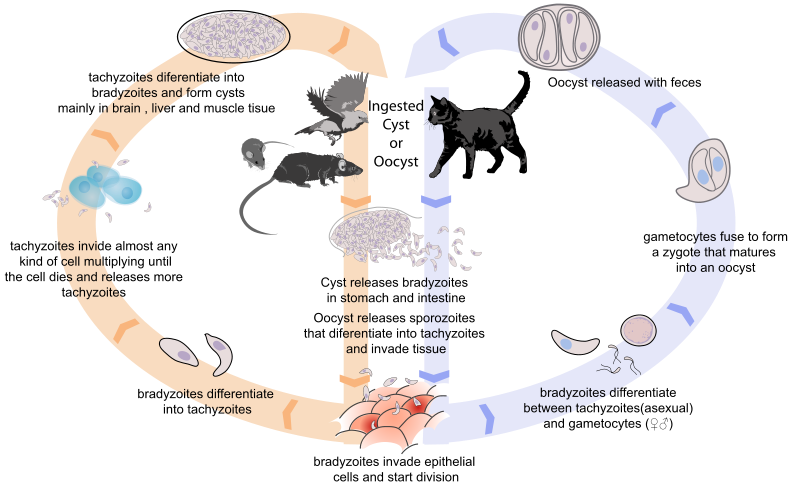It turns out world cup success does not depend on the ability of the players a team fields – but rather the presence of a particular parasite within their home country. This parasite, Toxoplasma Gondii (which sounds like the name of a footballer), may influence the natural dopamine levels of those infected. This diagram (from wikipedia) shows its life cycle, though it omits the bit where it helps win a World Cup for its host.

From Slate:
If we set aside the qualifying rounds (in which teams can play to a draw) and focus on matches with a clear winner, the results are very compelling. In the knockout round of this year’s tournament, eight out of eight winners so far have been the teams whose countries had higher rates of Toxo infection. If we go back to the 2006 World Cup, seven out of eight knockout-round winners could be predicted by higher Toxo rates. The one exception to the rule was Brazil’s defeat of Ghana, a match between two nations that each have very high rates. (Aside from having the winningest team in World Cup history, Brazil has quite a few cases of Toxo: Two out of three Brazilians are infected.)
It gets better. Rank the top 25 FIFA team countries by Toxo rate and you get, in order from the top: Brazil (67 percent), Argentina (52 percent), France (45 percent), Spain (44 percent), and Germany (43 percent). Collectively, these are the teams responsible for eight of the last 10 World Cup overall winners. Spain, the only one of the group never to have won a cup, is no subpar outlier—the Spaniards have the most World Cup victories of any perpetual runner-up. “
Coincidence? Perhaps. But I wish I’d read this before tipping a World Cup winner.